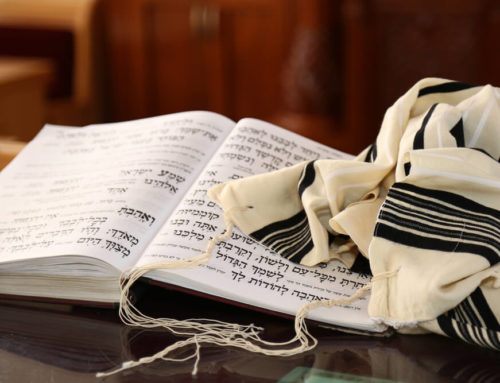If you have been studying the Jewish faith, you know that performing of the bris has many pertaining rules that can be bent. However, the rule of timing or the fact that the baby boy must be circumcised on the eighth day is usually an exception in terms of flexibility.
Even then, there are specific technical exceptions you should know about when you want to know how many days after birth is a bris and in which cases you can alter the rules. Once you know these, you can continue with the bris celebration.
So, without further ado, here are the three main reasons why is circumcision on the eighth day.
Biology and Healing
In most cases, women who give birth in the US will undergo a similar experience. Following delivery, if the baby is strong, he will be given to the mother and placed on her chest for bonding. In the next five to ten minutes, the nurse will take the newborn child to the place called the warmer, where they will evaluate the baby and give him the necessary medications.
These compounds will usually be erythromycin ointment for eye infections, and a vitamin K shot for improving the blood clotting capabilities of the newborn.
What’s the purpose of these meds? And what do they have to do with being circumcised on the eighth day?
Roughly, it takes about eight days for the blood clotting capacities to mature. In ancient days, people probably found out these things by trial and error, that’s why they determined that performing a bris is the safest on the eighth day for babies. Waiting for eight days also helps a lot with circumcision healing stages because the baby is usually strong and healthy enough by then to safely pull through the post-circumcision period.
Naturally, in the case of getting circumcised at an older age, these things shouldn’t pose problems.
God Says So

In a strictly religious sense, how many days after birth is a bris is determined by divine law. In Genesis, God peculiarly instructs Abraham to circumcise Isaac on the eighth day and that all Jewish newborn baby boys should undergo circumcision on the eighth day.
The Bible gives no particular reason or explanation for this specific eight-day time frame. Simply put, this is the period that parents must fulfill this commandment marking the entry of a young Jewish boy into the Covenant.
Still, even though there’s no clear explanation, a few theories are floating around that aim to “fill out the blanks” regarding getting circumcised on the eighth day.
According to a popular theory, the first seven days represent God’s genesis cycle (God formed the entire world for seven days and rested on the eight). Having this in mind, it sounds logical that the eighth day should be the date of a brit milah or the time for welcoming young Jewish boys to the Covenant between God and the Jewish community.
The Shabbat
Ultra-Orthodox Jewish communities hold the belief that by getting circumcised on the eighth day, every baby boy will be able to experience 24 hours of Shabbat holiness prior to actually having a brit milah and joining the Covenant.
According to these communities, performing a brit milah on the exact eighth day is so sacred that it manages to supersede the regulations regarding “not performing work” on Shabbat and Yom Kippur, along with other holidays celebrated in the Jewish faith.
However, there are a few exceptions:
- A brit milah can be postponed if the baby’s experiencing health issues, and the ceremony wouldn’t be scheduled on Yom Kippur, Shabat, or any other holiday.
- A conversion bris will also not be carried out on these events.
- Lastly, when a baby was born via C-section on the day of the Shabbat, the brit milah would be pushed to the ninth day, which is a Sunday. The same rules apply if the baby was delivered with the help of a C-section on Rosh Hashanah, Yom Kippur, or on other holidays, even if those days were the actual eighth day.
In the Case of Illness
Jewish law clearly states that if the baby is sick or considered not healthy or well enough, the brit milah can be postponed and doesn’t have to take place on the eighth day following birth.
This law is more or less the same across all Jewish communities. It follows the universal philosophy that these religious regulations exist to promote and enhance life and not for simple blind fulfillment, something that can potentially harm people’s lives and overall health.
That being said, a brit milah can be postponed for the following health reasons:
- Prematurity
- Low birth weight
- Infection
- The baby has jaundice
- The baby’s experiencing respiratory problems
- The baby’s penis has an abnormal anatomy
When postponing a bris for health concerns, parents can reschedule the ceremony any day seven days following the baby’s doctor gives the green light that the baby boy is strong enough to undergo the procedure, as long as it’s not Shabbat and other holidays of the Jewish faith.
The Eighth Day
Calculating the eighth day is relatively easy based on brit milah rules. It refers to the exact same day the baby was born (just one week later). Jewish law states that the new day begins at sunset. If the baby was born after the sun sets, the new day will define the point where you would have to count the eight exact days.
There are several rules when it comes to performing the bris when the baby was born around nightfall, but in these cases, it’s better to perform a bris an extra day later than one day early.
Furthermore, a bris is performed in the morning in most cases. While it’s not a strict rule, it should generally be performed before the sun sets.
Can the Rules Be Bent?

Issues arise when mohels are asked to perform a ceremonial brit milah another day because of other reasons like family travel, other issues, or simply because of family convenience. This can pose a huge religious dilemma since the rules pertaining to this eighth day are a crucial part of brit milah and the Covenantal ceremony.
At the end of the day, it depends mostly on the family and the mohel to decide whether they will move the ceremony another day or not because of an event that’s important enough to violate these sacred religious laws.
However, certain situations like a close family member’s passing, other family crises, and travel delays due to heavy weather may require the ceremony to be performed on another day. Still, the bris shouldn’t be rescheduled from the calculated eighth day except if the reasons are compelling enough to do so.
Consult a Mohel
If you still have any concerns or questions regarding this sacred ceremony, reaching out to a professional should be your best course of action. That being said, scheduling an appointment with experts like Andrew Krinsky mohel can help you better assess your options when it comes to this important ceremony.







